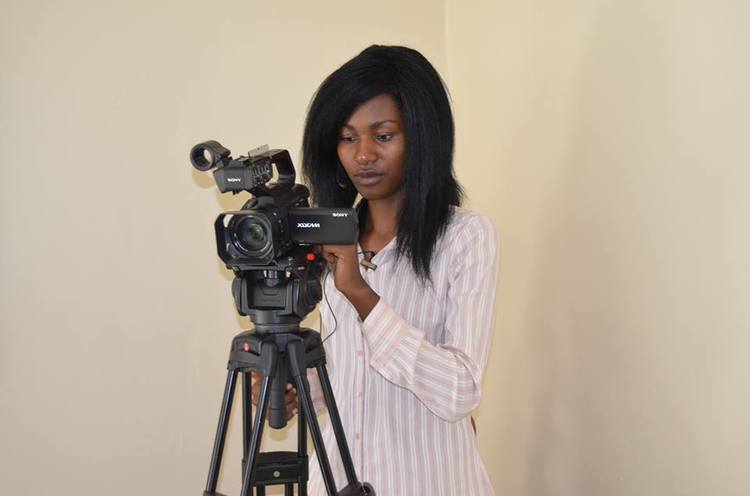
The Sunday Mail

THE Namas have come and gone, leaving behind a trail of disappointments for those who went home empty-handed.For those who walked away with accolades, they will forever treasure their achievements and their names shall be engraved in the annals of local arts.
Among the winners was Nakai Tsuro, who finally realised her dream of being recognised as the best in her craft having missed out on the opportunity after being nominated for a Nama in 2010 for her movie “The Long Night”.
The filmmaker won a Nama in the Outstanding Screen Production Full Length Film category for her movie “Mwanasikana”.
To put icing on the cake, the winner for Outstanding Actress, Chipo Mbizvo, was also part of the Tsuro’s cast.
The local film industry has been stagnant in recent times but many filmmakers are hopeful of a bright future; and with digitisation in the pipeline, the season to blossom is nigh.
Tsuro is among the filmmakers who have continued to work hard, who have dared to dream, and indeed dared to dare.
The Sunday Mail Leisure tracked down the talented lady who shared the story that led her to a Nama.
“I was born on July 9 1983 at Harare General Hospital and I virtually grew up in Harare. When I was growing up, my dad would always tell me that I would one day be an air hostess so that is how I visualised my future back then,” laughs Tsuro.
After finishing primary school at Glen View Primary 8, she enrolled at Oriel Girls High for her secondary education and upon completion moved to the United Kingdom where she sudied to be a mental health nurse.
In 2006, Tsuro took a giant leap of faith and ventured into media at Northbrook College in West Sussex.
“Medicine is my second love, so I guess if I was not making films I would be in a hospital ward somewhere because I am also very good at that.
“I fell in love with writing when I was still in high school where I ended up joining the Media Young Writers Club where I would do the puzzles in the school magazine.
“When I was in the UK I ended up doing studies in Introduction to Media and later on started writing scripts and directing.”
Her first job in the film industry was at Image Pictures London where she did adverts before moving full-time into filmmaking.
“Right now I am a full-time filmmaker having written and directed my first feature film ‘The Long Night’, in 2010 which went on to be nominated for a Nama but failed to win.
“On that film, I worked with Willard Magombedze, who most people know as Slimaz and from there we went on to do two more features ‘Think’ in 2011 and ‘Love like This’ in 2012.”
Tsuro’s talents extend to the small screen.
“In 2013, I created a reality show called ‘Cultured’, where I teamed up with other producers who include Demitria Karonga, UK-based Tafara Gondo and Myren Media. The show aired on ZBC but unfortunately we only managed to do one season due to lack of funds.”
In 2014 she produced another feature, “The Best You Never Had”, following up with “Mwanasikana” in 2015.
“Last year I also created a series called ‘Statements’ at Pakare Paye but it was just a pilot project so we are now working on producing the real thing. I am currently working on the sequel to ‘Mwanasikana’, which is going to be titled ‘Mwanasikana the Journey Continues’.”
Winning a Nama award has been a milestone for the filmmaker who looks forward to doing greater things in the industry.
“Winning the Nama was a great achievement for me because I work very hard and it feels great to be recognised as one of the best in the field. In my case, we were nominated for two awards for the film and scooping both was just smoothing else, which I think will challenge me to work even harder.”
She went on to mention that local film needed a lot of support if it was to improve.
“Besides financial support, we need serious people who are willing to work hard to tell their stories because at the moment there is a lot of confusion, with people who try to be filmmakers overnight without understanding the art. If this industry is to grow, there should be government support and proper identification of talent and facilitation of programmes that teach aspiring actors and filmmakers.”



